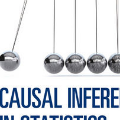Many tasks in statistical and causal inference can be construed as problems of \emph{entailment} in a suitable formal language. We ask whether those problems are more difficult, from a computational perspective, for \emph{causal} probabilistic languages than for pure probabilistic (or "associational") languages. Despite several senses in which causal reasoning is indeed more complex -- both expressively and inferentially -- we show that causal entailment (or satisfiability) problems can be systematically and robustly reduced to purely probabilistic problems. Thus there is no jump in computational complexity. Along the way we answer several open problems concerning the complexity of well known probability logics, in particular demonstrating the $\exists\mathbb{R}$-completeness of a polynomial probability calculus, as well as a seemingly much simpler system, the logic of comparative conditional probability.
翻译:翻译后的标题:
因果推理比概率推理更难吗?
翻译后的摘要:
在适当形式的语言中,统计学和因果推断中的许多任务都可以看作是关于“蕴含”的问题。文章探讨了关于从计算角度来看,“因果”概率语言的问题是否比纯概率语言更难处理的问题。尽管因果推理在表达和推理方面具有多种复杂性,但我们证明,因果蕴涵问题可以被系统而且稳健地系统地化归为纯粹的概率问题。因此,从计算复杂度方面来说,并不存在跳跃。在研究中,我们还回答了有关众所周知的概率逻辑复杂性的几个开放问题,特别是证明了多项式概率演算的 $\exists\mathbb{R}$ -完全性,以及一个看似简单得多的比较条件概率逻辑系统。


